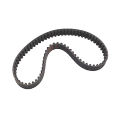Financing all Credit Types - 
Financing all Credit Types - 
Financing all Credit Types - 
Financing all Credit Types - 
The primary job of the differential is to distribute power from the transmission to the wheels, allowing them to rotate at different speeds. This is particularly important when turning corners or navigating uneven terrain, as the outer wheels need to spin faster than the inner wheels to accommodate the difference in distance traveled.
Lubricating the gears and bearings within the differential is the crucial role of the differential fluid. This specialized fluid ensures that the various components can move and interact with each other smoothly, without excessive friction or wear.
When the differential operates smoothly, aided by properly lubricated fluid, it facilitates seamless power transfer from the transmission to the wheels. This ensures your vehicle can navigate corners, ascend hills, and tackle rough terrains effortlessly, resulting in a comfortable and agile driving experience.
However, if the differential fluid is neglected, the consequences can be severe. Over time, the fluid can break down, become contaminated, or simply run low, leading to increased friction and wear on the differential components. This can result in a host of issues, including noisy operation, difficulty turning, and even complete differential failure – a costly repair that no driver wants to face.
When the differential fluid level drops below the recommended amount, the consequences can be severe. Without the proper lubrication, the various components within the differential are forced to operate under increased friction and heat, putting them at risk of significant damage.
As friction and heat accumulate, the intricate gears and bearings housed within the differential can experience wear, pitting, or total destruction. Such gear-related damage often necessitates costly repairs, potentially requiring the differential to undergo rebuilding or complete replacement—a financial burden no vehicle owner desires to encounter.
When it comes to keeping your differential fluid in top condition, the general rule of thumb is to change it every 30,000 to 60,000 miles. However, it's important to note that this range can vary significantly depending on the make, model, and year of your vehicle.
To ensure you're following the optimal maintenance schedule for your specific car, it's essential to consult the owner's manual. Manufacturers often provide detailed recommendations on the recommended differential fluid change intervals, taking into account the unique design and usage characteristics of the vehicle.
Several factors can influence the longevity of your differential fluid, such as driving environments, towing or carrying heavy loads, and the prevailing climate in which your vehicle operates. For instance, vehicles regularly navigating rough terrains or engaged in robust tasks may necessitate more frequent fluid replacements to uphold peak performance and safeguard the differential system.
Taking care of your vehicle's differential is an essential responsibility for any car owner. Recognizing early warning signs of potential issues is crucial to proactive maintenance. By remaining attentive and promptly addressing any alarming symptoms, you can keep your differential functioning smoothly and efficiently. This not only protects your investment but also enhances your overall driving experience.
Unusual Noises - A Telltale Sign: An often-seen sign of issues related to differential fluid is the occurrence of uncommon noises emanating from the differential area. Should you detect unusual sounds like gear whining, howling, or any other atypical noises, it may indicate insufficient lubrication from the fluid. This could result in heightened friction and wear on the differential components.
Vibration While Turning: Keep an eye out for another sign: a distinct vibration or shuddering feeling when you turn your vehicle. This could indicate improper functioning of the differential, possibly caused by low fluid levels or contamination in the system.
Overheating Differential Casing: At times, you might observe that the differential casing feels notably warm when touched, signaling a potential problem with the fluid's ability to efficiently dissipate heat. This overheating can precede more significant issues, underscoring the importance of addressing it promptly.
For individuals who enjoy taking matters into their own hands, opting for a DIY differential fluid change can prove to be a budget-friendly choice. Based on search findings, the required materials for a DIY fluid change, including the fluid and essential tools, generally fall within the $20 to $100 range.
Embarking on this DIY path empowers you to manage the maintenance process, potentially resulting in significant cost savings compared to engaging a professional. However, it's crucial to possess the necessary knowledge, skills, and equipment to execute the task safely and proficiently.
Opting to entrust the job to skilled professionals, such as a professional mechanic or service center, for your differential fluid change can be a convenient choice. Based on search data, the cost for this service typically falls between $150 to $250, contingent upon your vehicle's particular make and model.
Although this approach may incur higher costs compared to the DIY option, it guarantees that experienced technicians will handle the task using proper tools and equipment, providing reassurance that the job will be completed accurately. This can be particularly advantageous for intricate or specialized differential systems.
In many rear-wheel-drive vehicles, the front differential is integrated into the transfer case. The transfer case is responsible for distributing power from the transmission to both the front and rear axles. This integrated setup results in the front differential sharing the same fluid and maintenance schedule as the transfer case.
On the other hand, the rear differential is an independent unit typically positioned at the back of the vehicle. Its primary function is to distribute power from the transmission to the rear wheels, enabling them to rotate at varying speeds as required during turns and maneuvers.
Although both the front and rear differentials are vital components of your vehicle's drivetrain, they may require distinct service intervals and fluid types. To adhere to the manufacturer's recommended maintenance schedule for each differential, it's essential to refer to your owner's manual or seek advice from a qualified mechanic.
Even though the differential isn't flashy, it's crucial for your vehicle's long-term performance and reliability. By regularly changing the differential fluid, you're taking a proactive step to protect your investment and enjoy a smooth-running drivetrain. So, when you're doing maintenance, remember your trusty differential and its important fluid.
Instead of having to drop off your vehicle at a traditional repair shop and wait for the work to be done, Instant Car Fix will send a certified technician directly to your location - whether that's your home, office, or even the side of the road if you need to get the differential fluid replaced.
This mobile service model eliminates the hassle and inconvenience of taking your car in for maintenance, allowing you to have the differential fluid replaced while you go about your day.
Instant Car Fix brings the repair shop to your location, ensuring expert care for your vehicle's differential without the hassle of arranging transportation or taking time off work.





















